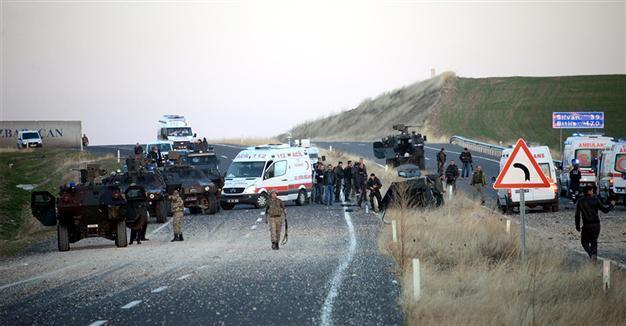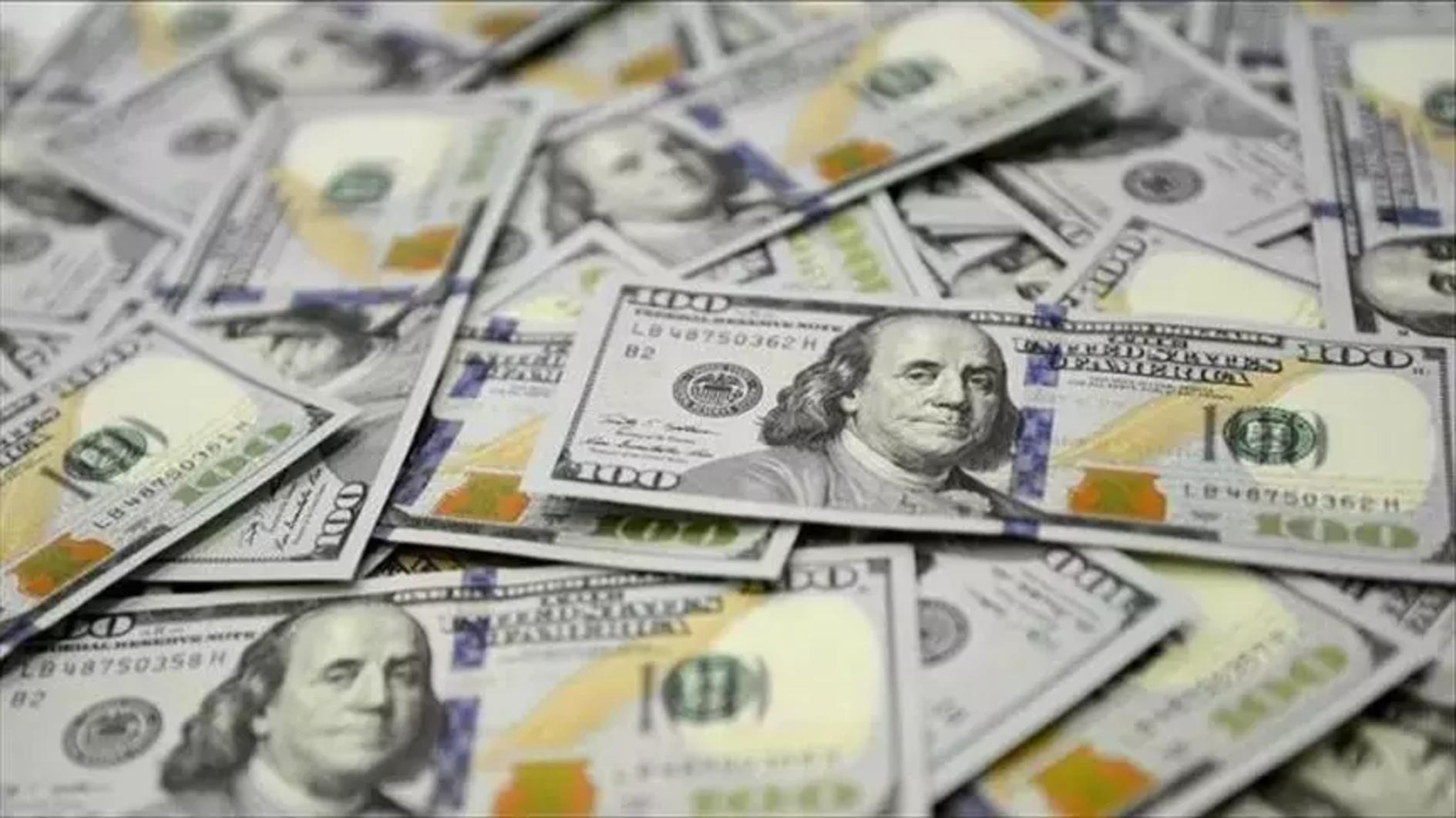Three Turkish policemen killed in southeast attack, clashes continue
DİYARBAKIR / ŞIRNAK

DHA Photo
Three policemen, including a ranking officer, were killed on Dec. 15 in an outlawed Kurdistan Workers’ Party (PKK) attack in the Silvan district of Diyarbakır amid curfews and clashes in several southeastern provinces.PKK militants remotely detonated explosives placed on the Diyarbakır-Silvan motorway during the passing of an armored police vehicle. Police Chief Ahmet Kabukçu, who was temporarily appointed to Diyarbakır, Mustafa Nohut, a special police force member, and official Nuri Yazaner were killed, Doğan News Agency reported.
Two other officers were injured.
Tensions were also high in Diyarbakır’s city center on Dec. 15. PKK militants clashed with reinforced gendarmerie and police units around the destroyed Kurşunlu Mosque, close to where Diyarbakır Bar Association head Tahir Elçi was shot dead on Nov. 28.
The bodies of Serdil Cengiz and Şiyar Salman, who were killed a day earlier, were laid to rest on Dec. 15, as a large crowd attended the ceremony.
The Peoples’ Democratic Party (HDP) held its weekly parliament group meeting in Diyarbakır on Dec. 15, instead of convening in Ankara to highlight the clashes. Posters of Cengiz and Salman were hung at the venue.
“Every citizen who hit the street yesterday [Dec. 14], as well as ourselves, were made targets. The political power is even not obeying the laws that it enacted itself,” said HDP co-chair Figen Yüksekdag. “You have divided the country into two and are implementing a special law.”
The politician estimated that 200,000 people have fled homes during increased clashes in recent months.
The main opposition Republican People’s Party (CHP) criticized both the government and militants, who have dug some ditches in the eastern and southeastern provinces.
“Those who are digging the ditches should not forget this,” said CHP leader Kemal Kılıçdaroğlu, while addressing his party group in parliament. “You are doing the worst thing against Turkey.”
When the ruling Justice and Development Party (AKP) came to power in 2002, there was no terrorism, he said, also criticizing a “frozen” resolution process to find a peaceful solution to the Kurdish issue. “They did it as they know it and Turkey came to this point. These people started to migrate,” he said, asking the government to account for it.
Many shops in the Bağlar district, where clashes took place, remained closed. A group of Diyarbakır tradesmen visited Gov. Hüseyin Aksoy, saying they were suffering from the clashes.
In the Silopi district of the province of Şırnak, one of the hot spots of the clashes, the Habur border gate to Iraq was closed as part of the security measures.
Armored vehicles were deployed to hills around Cizre, another Şırnak district under curfew.
The Silk Way trade route, which passes through both Cizre and Silopi, was also closed by government forces.
Many people have already fled from Cizre in fear of renewed clashes. Those who fled included teachers who received a message from authorities that they should receive “occupational training” in their hometowns.
The move was interpreted by many as a call for teachers to leave Cizre before a punishing security operation.
Zeynep İdin, a local unionist, said in a press briefing in central Şırnak that they “would not hand their kids to teachers who fled like rats from a sinking ship even if schools were opened again.”
The curfew in particular neighborhoods in Mardin’s Dargeçit district entered a second day. Locals staged a protest as power remained cut in two neighborhoods amid the sounds of explosions and gunfire in the area.
















